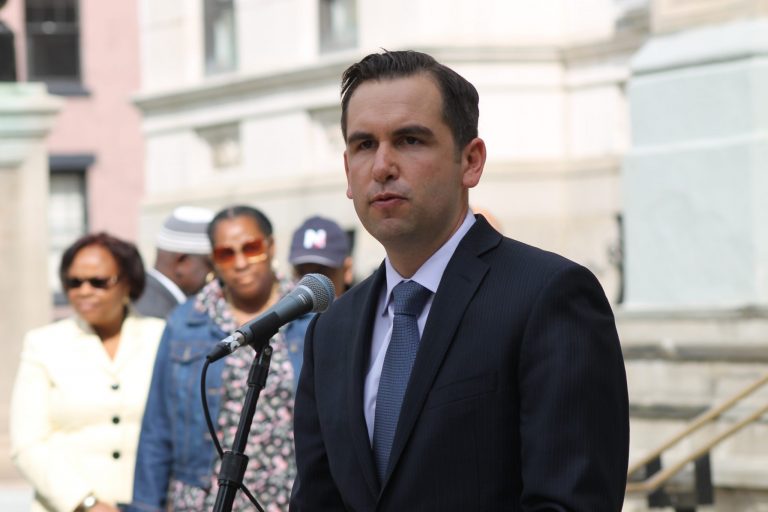
Mayor Steven Fulop is calling on the state Legislature to fix the current Payroll Tax, which he said is practically optional as it stands today.
“The current Payroll Tax from Trenton lacks any real teeth, and so we’re forced to deploy our resources on the local level to try and enforce something that is essentially unenforceable,” Fulop said.
During a joint meeting of the City Council and Board of Education to discuss the public school district’s financial woes in May, Fulop highlighted this flaw in the Payroll Tax legislation, which had been implemented to help address the state’s financial cuts to the district.
It was originally estimated to bring the district roughly $100 million annually, but so far it has reached only $86 million – a figure that decreased this year to $65 million.
Now, the Fulop Administration is working with local legislators to amend the Payroll Tax legislation at the state level. To close the payment accountability loophole, the state would collect payroll taxes directly, since the information necessary for enforcement is available to Trenton and not at the local level.
Most of the applicable information is regularly obtained by the state through quarterly reports, such as business identification data critical for enforcement, but it is not shared with the city for privacy protection reasons.
Millions more
“Without critical information from the state, the city is unable to place liens, as the number of employees working at any establishment is opaque,” Fulop said. “The inability to place a lien on a business that doesn’t pay means that the city can’t move forward with tax lien sales, as we would with property taxes, because nobody would ever purchase a lien to which they don’t know the value. This can be cleared up by the state easily and increase collections by more than 33 percent overall for next year, which would mean tens of millions of dollars more to our schools.”
Jersey City adopted the Payroll Tax Ordinance in November 2018. The ordinance established a 1 percent payroll tax on an employer’s gross payroll to benefit Jersey City public schools. Employers are required to file and pay the new tax on a quarterly basis. Employees of the municipality, school district, and those who live in Jersey City are exempt from the tax, but not subcontractors for the city or schools.
Since then, nearly 3,300 businesses have registered with the city, according to the administration.
The ordinance requires employers to register even if they are not subject to the tax, but, according to Assemblyman Raj Mukherji, the state legislation lacks the tools to hold businesses accountable.
“What’s the point of enabling a municipal payroll tax to fund our schools if it isn’t coupled with the tools to enforce and collect?” said Mukherji. “Moving the collection function to the state is only logical so that employers are actually held accountable for their payroll tax obligations.”
The Fulop Administration has made multiple efforts to promote compliance on the local level, including creating an internal audit team.
According to the city, the findings from the audit have been reviewed by internal and external auditors working as a committee and addressed through notices to the entities.
The team has increased efforts to collect taxes and penalties owed by sending out deficiency letters, conducting site visits, and making phone calls to each business owner.
“If any homeowner defaulted on their taxes, they’d quickly be slapped with a lien, and the value of the lien would be clear to everyone as the city and the property know what the unpaid dollar amount is,” said Fulop. “Businesses face little to no repercussions if they evade payment on the payroll tax because the city wasn’t provided the tools to enforce the tax with transparency. It needs to be fixed and can be fixed easily by Trenton.”
For updates on this and other stories follow us on Twitter @hudson_reporter. Marilyn Baer can be reached at [email protected].









